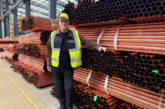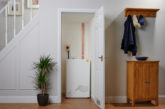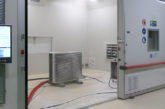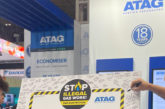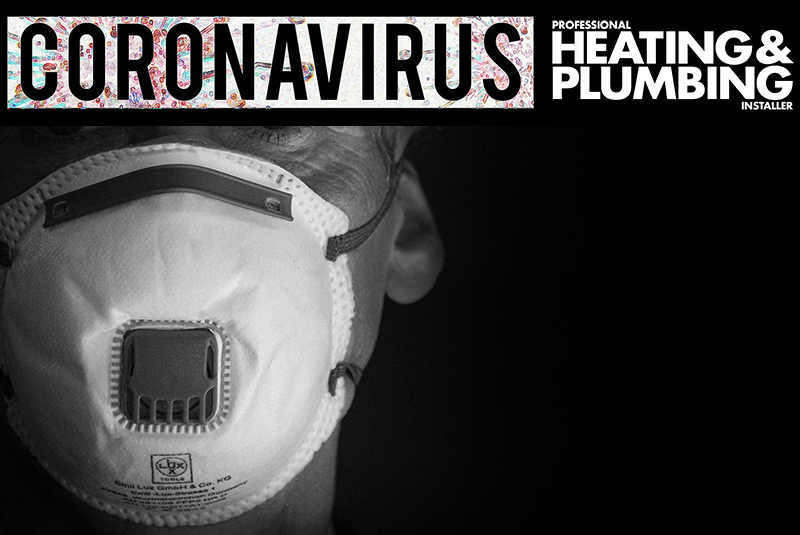
The CIPHE has issued the following information and advice about COVID-19.
Coronavirus (COVID-19) has now officially been declared as a pandemic and on 13 March 2020, the World Health Organisation (WHO) declared Europe as its new epicentre. The UK Government advice has moved from a phase intended to contain the virus to one intended to delay its spread amongst the population. These include significant ‘social distancing’ measures for people either concerned that they are displaying symptoms or who have been diagnosed with coronavirus.
Plumbing and heating industry impact
As with many tradespeople, members of the plumbing and heating industry serve their communities in domestic environments. There are a number of serious implications and considerations to be made in delivering this service at the time of a pandemic:
· Personal safety and wellbeing
· Safety and wellbeing of your customer
· Insurance cover and public liability
· Legal positions
· Help for my business
Personal safety and wellbeing
First of all, it is important to emphasise that you are perfectly entitled to choose to not work in a particular environment because you feel that it is unsafe. If you run your own business, then you can decline work on this basis and if you are an employee you can raise your concerns with your employer, who must be prepared to listen and risk assess the environment you are entering.
Where you are happy to continue, assume that the premises you are working in and the system you are working on contain the virus, and prepare yourself appropriately. Extend your use of Personal Protective Equipment wherever reasonably possible. There are certain items such as safety glasses, gloves and face masks, which are frequently a part of a plumber or heating engineer’s armour. Let your customers know that you will be extending your use of these to include your arrival on-site. If at all possible, use disposable items so you can wear a new set on the next job. Let your clients know of any additional costs because of precautionary measures taken at this time, making it clear that you are taking these steps for your own safety and that of your clients. Clean your tools properly at the start and finish of any job, especially before you return them to a tool bag or vehicle that you may be using to transport them in. Change your clothes immediately when returning home and ensure they are laundered.
Safety and wellbeing of your customer
Many members of the plumbing and heating industry are sole traders or micro-SMEs. This often means that any length of time away from work hits particularly hard and the temptation to work when feeling a little bit under the weather is very real. However, it is important to be aware that symptoms which might be described as being under the weather are often reported by those later diagnosed with having contracted the coronavirus. While your symptoms may be mild, the virus could be deadly to more vulnerable clients.
This means that working while feeling unwell could pose a risk to the health of your customers, and is therefore something you must avoid.
Insurance cover and public liability
With regards to your Public Liability insurance, it is reassuring to know that nothing related to the coronavirus pandemic will adversely affect the coverage provided. For that reason, you should continue to perform your role as professionally and diligently as you would at any other time. It would be wise to check all of your insurances (Personal ill health/sickness and Commercial) to claim for any losses that may be covered by this pandemic).
Legal positions
A member of staff has been diagnosed with coronavirus. Should I close my business?
The local Public Health England (PHE) health protection team will come in to conduct a risk assessment. The workplace could require a deep clean in response, but they will advise on this and whether a closure is necessary. In the meantime, there is no need to close or to send other staff home.
Does an employee get full pay or SSP if they are diagnosed with coronavirus?
Coronavirus related illness should be dealt with in exactly the same way as any other sick leave employees may take. If you normally only pay statutory sick pay (SSP) during sickness absence, then this is what the employee should receive (subject to usual eligibility requirements being met). However, whereas ordinarily SSP is payable from day four of sickness for up to 28 weeks in total, the first three days being non-payable waiting days, where the reason behind the absence is coronavirus, SSP should be payable from day one.
What is the position if an employee does not wish to attend a particular property where we have a job?
As an employer, you should undertake a risk assessment of the situation and listen to your employee’s reasons, ensuring that you are both fully aware of the latest government guidance on “social distancing”. If an Employee is legitimately self-isolating that should not be questioned, but otherwise the Employer may wish to call the legal helpline for advice. If there is no objective reason for the employee not to attend and fulfil their job description and duties, this could potentially lead to Disciplinary action being considered for alleged refusal to obey a reasonable management instruction.
What happens if an employee has chosen to self-isolate and is not coming to work?
The important thing here is to assess and respond reasonably. Official advice is for people to self-isolate for 14 days if they feel they, or someone in their household, have symptoms related to coronavirus. Those in at-risk groups, who are aged 70 or over, have certain health conditions or are pregnant, will be asked to stay home for 12 weeks. Acas advice is that it is good practice to offer your usual contractual sick-pay for members of staff who self-isolate. The situation is subject to ongoing review but as at the 18th March 2020 (time of going to press), the government have announced;
· if you live alone and you have symptoms of coronavirus illness (COVID-19), however mild, stay at home for seven days from when your symptoms started.
· if you live with others and you or one of them have symptoms of coronavirus, then all household members must stay at home and not leave the house for 14 days. The 14-day period starts from the day when the first person in the house became ill.
On the basis that, if you live in a “household” where any member of that household displays symptoms of coronavirus (persistent cough, fever) the government has announced that you “must” self-isolate for 14 days. Such self-isolating employees would be entitled as a minimum to SSP (from day one) as per the prior government announcement, and can self-certificate for seven days and thereafter need GP certification in the usual way.
I am sending staff home and/or not working as a precaution. Do I still pay employees?
If you are sending an individual home as a precautionary measure because you are worried about exposure to coronavirus, this will be on full pay. In this case, your employees are following the reasonable instruction of their employer and should get their normal pay. In the current situation, if you close the workplace to prevent the spread of the coronavirus, you will still have to pay employees in most cases. You can reasonably discuss consenting to reduce salaries but this will likely impact on staff morale too. You should seek legal advice if you need to take this option.
Is there any flexibility for expiring documentation such as a Legionella Risk Assessment or Gas Safety Certificate that my customers may have if I cannot attend due to the coronavirus/ self-isolation etc?
In the event that tenants are in self-isolation, government guidance may be raised as a means of trying to mitigate why you are unable to attend a premises for inspection/certification. However, the current obligations remain legally enforceable.
Help for my business
On 17th March 2020, the Chancellor announced a range of financial measures for business, including government backed loans and guarantees, low cost lending facilities for larger firms, and support packages on loans for SMEs with no interest due for the first six months and cash grants of £10k for small businesses. Additionally, a three-month mortgage holiday from repayments to mortgage lenders is available for those in difficulty.
Although time away from the tools is difficult, think about the other things you could be doing for your business. For example:
· Focus on cash flow management… Prepare any outstanding quotes you may have for jobs in the pipeline. Invoice for all services already delivered. Chase up all currently outstanding debts.
If that isn’t enough, then look seriously at how you can delay committing to any expenditure. Don’t be afraid of talking to your bank about any business support services they may be able to offer.
Although not eligible for SSP, last week’s Budget made clear that self-employed workers can now “more easily make a claim for Universal Credit or Contributory Employment and Support Allowance.” And, away from the finances, look at how you can use the time to keep up with your Continuing Professional Development (CPD).
Consumer advice
The CIPHE understands that members of the public are often in a vulnerable position when they suffer a breakdown or malfunction with their plumbing and heating system. It can feel catastrophic and an emergency to be without hot water or heating but if you are unwell, it is important to be honest with your plumber or heating engineer so they know the situation they will be faced with when they arrive at your property. If you are in a period of self-isolation or have been diagnosed with coronavirus, inviting people into your home who then go on to visit many more customers during their working day is a guaranteed way of spreading the virus.
The likelihood is that as soon as a professional arrives at your home, they will be able to tell that you are unwell and will legitimately refuse to conduct the work that you are asking to be undertaken.
Please do all you can to maintain your plumbing system and reduce the risk of blockages by only flushing human waste and toilet paper down the lavatory. Causing obstructions in the system at your home or in the sewer network can pose a serious risk to your own health and that of others. If you do have a problem with your plumbing and heating system and you are unable to obtain the services of a professional, there are certain minor fixes such as clearing blockages that you may be able to try to resolve for yourself. Never be tempted to work on anything that involves your gas or your electricity supply.
Public Health England
The best advice for anyone comes from Public Health England:
· The most common symptoms of coronavirus (COVID-19) are recent onset of a new continuous cough and/or high temperature. If you have these symptoms, however mild, stay at home and do not leave your house for 14 days from when your symptoms started. You do not need to call NHS111 to go into self-isolation. If your symptoms worsen during home isolation or are no better after seven days, contact NHS 111 online. If you have no internet access, you should call NHS 111. For a medical emergency dial 999.
· Wash your hands more often than usual, for 20 seconds using soap and hot water, particularly after coughing, sneezing and blowing your nose, or after being in public areas where other people are doing so. Use hand sanitiser if that’s all you have access to.
· To reduce the spread of germs when you cough or sneeze, cover your mouth and nose with a tissue, or your sleeve (not your hands) if you don’t have a tissue, and throw the tissue away immediately. Then wash your hands or use a hand sanitising gel.
· Clean and disinfect regularly touched objects and surfaces using your regular cleaning products to reduce the risk of passing the infection on to other people.
Legal advice
Members of the Chartered Institute of Plumbing and Heating Engineering (CIPHE) have access to a free legal advice service as a part of their membership. It is available via 01275 405 600 and you must have your name and membership number in order to use it. For any assistance regarding CIPHE membership, please contact [email protected] or telephone 01708 463116.
This story first appeared here






